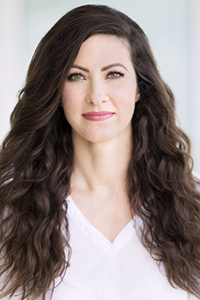Is the suppression of spirituality in the West the reason for our struggle and suffering labeled as mental illness? Are we medicated to numb the pain and psychospiritual protest related to the felt wrongness in our modern lives? Here’s what I learned from my trip to India…
In a story called The Magician’s House by Jan Dean, Genet makes a deal that seems impossible to refuse. She agrees to work for the magician, lighting the fireplaces for a year and a day in exchange for her heart’s desire. Over her tenure, the house grows and grows with the fireplaces multiplying into the hundreds, until the house is all there is on the earth. When it comes time for her wish to be granted, she asks simply for the gift of forgetting home and the good green world that was, as there is now no home to return to.
Does this story have relevance to our American lives today? I think so. We are awaiting the granting of our heart’s desire, slowly realizing the bankruptcy of the promise.
To have been led down the perilous path of greed, shortcuts, and glittering promises is to risk a rupture with the natural emergence of a sacred design. It’s a posture that says — I will architect my experience because I know best what I need. There comes a time when we must reckon with the costs of our desire to “cheat the system,” where perhaps we beg to forget what it is that was lost in the process. So that we can arrive at a place where “missing is any sense that anything is missing.”
* * * * *
I thought of this tale as I rode with my fellow kundalini yogis on a camel cart down the dusty streets of Neemrana village in Rajasthan, India. The scene was psychedelic in nature. There were splashes of every color tracking across my view, cows lounging in the road, peacocks yelping, packs of dogs, lumbering donkeys, people in repose on the ledge of three walled rooms, children playing together, women washing clothes in a bucket, and every imaginable transportation methodology from bike to moped to rickshaw to car, all moving in a structured amoeba-like chaos.
Not unlike a
kundalini exercise where the mind is calm amidst a very active body and breath pattern, the busyness was external to and in the greater context of a kind of calm and contentment that was powerfully transmitted. As I looked around, I felt awash with the resonance of a pervasive peace, ease, lightness, and simplicity. Taking it all in brought a swell of an unnamable emotion in my heart. Tears came to my eyes.
This would be one of many experiences I would have in my
ten days in India that would bring me into direct contact with a soul-level knowing that we are living in the West with
something very important missing from our life experience. It was as if, perhaps, we had been granted that wish of forgetting the wonder we had once known but lost contact with after we collectively embraced the promises of modern medicine, technology, and credit-based economies.


